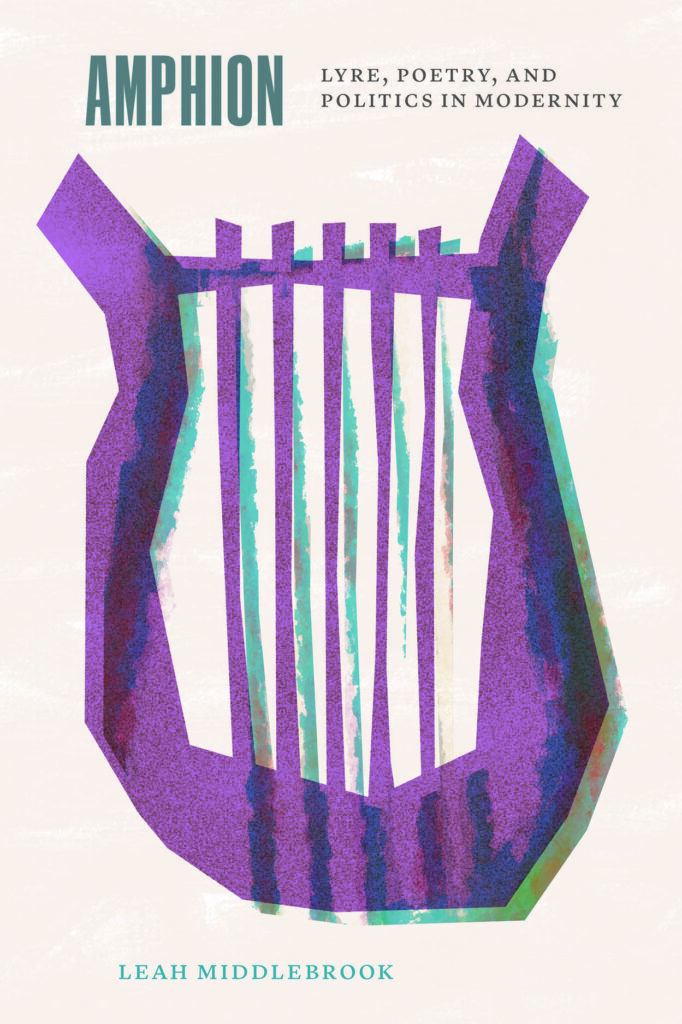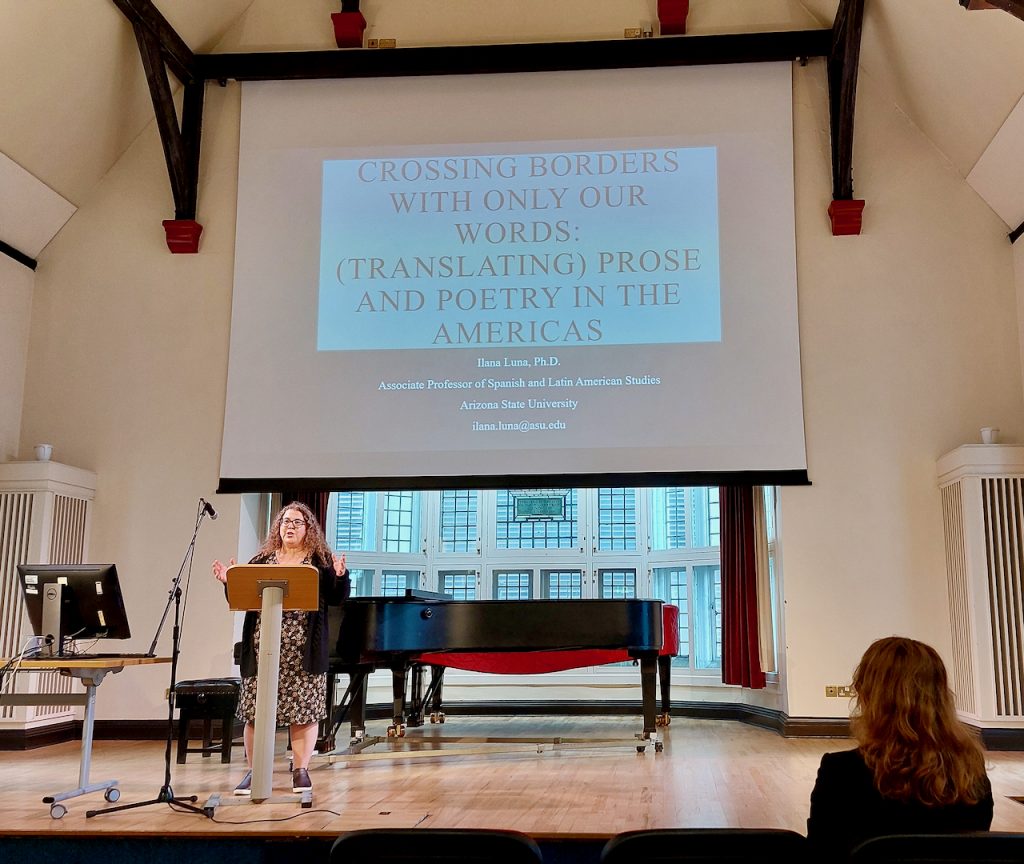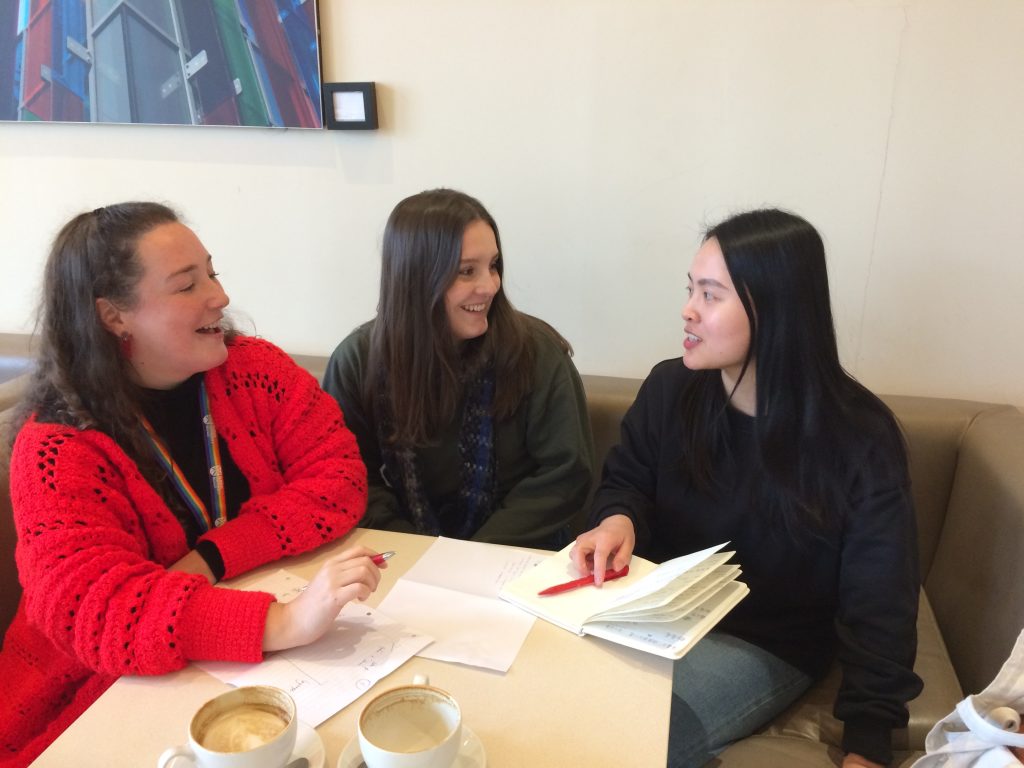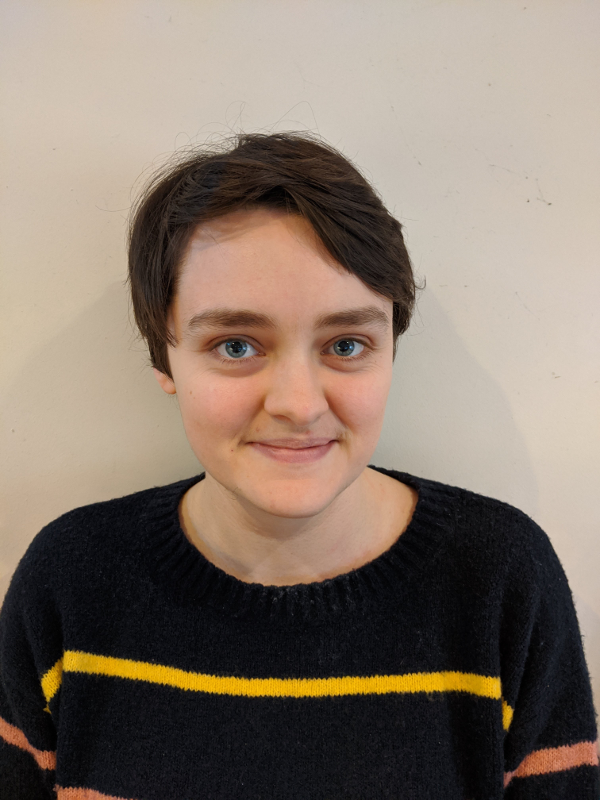This post is part of our Research Initiation Scheme for 2024-2025.
On Wednesday 30th October, the Core Disciplinary Research Group in Modern Languages hosted Leah Middlebrook, Associate Professor of Comparative Literature and Spanish at the University of Oregon. Professor Middlebrook gave a seminar on the findings of her new book, Amphion: Lyre, Poetry and Politics in Modernity (University of Chicago Press, 2024).

Professor Middlebrook opened her presentation with the story of the construction of the city-state of Thebes, as told through the myth of Amphion, who with the playing of his lyre made the stones move to build walls to form this great city. The figure of Amphion has continued to be prominent for his role in music and architecture. He was also key to the development of lyric theory and practice, as Professor Middlebrook demonstrated. However, Amphion was pushed to the academic and cultural periphery in the 18th and 19th centuries.
The idea that Amphion represents is that fragments converge to create something abstract and solid, in particular, creating bulwarks of language. This is best encapsulated according to Professor Middlebrook, in the reference to Luis Pérez Ángel, as cited in the 1602 work Discurso en loor de la poesía (by anonymous Peruvian poet “Clarinda”) whose poems were described there in an explicit Amphionic analogy as “build[ing] […] walls” for a city, a concept that Middlebrook revisited later in the seminar. This came in the form of the image depicting Mercury (Hermes) guiding Amphion as he played the Lyre, an instrument of Hermes’ own invention. The image connotes the idea that while Amphion’s lyre is associated with the civic form that is the polity, it is also a figure that represents the power of lyric to deconstruct. This was a poignant suggestion made by Middlebrook as Thebes was reputed to be a political disaster. It was a city that, although capable of keeping its enemies out, could not, however, deter its own social erosion. Middlebrook described this dynamic as ‘The mercurial Poesis’, since the Theban stones represent both construction and destruction. The lyre animates collective action, but that action can result in ruin.
Continue reading

